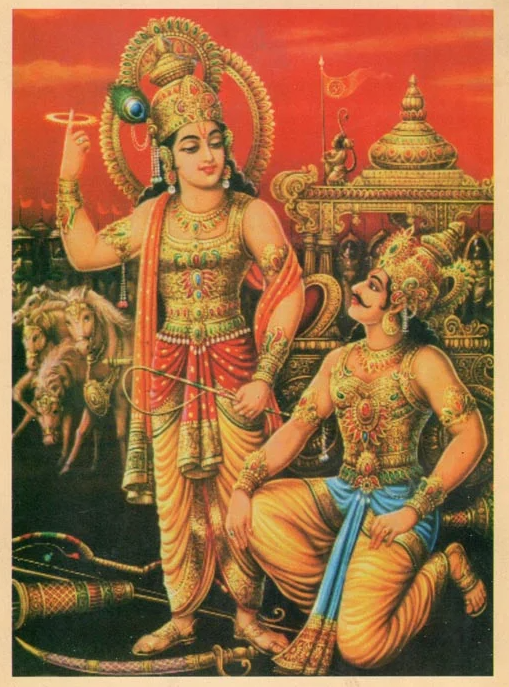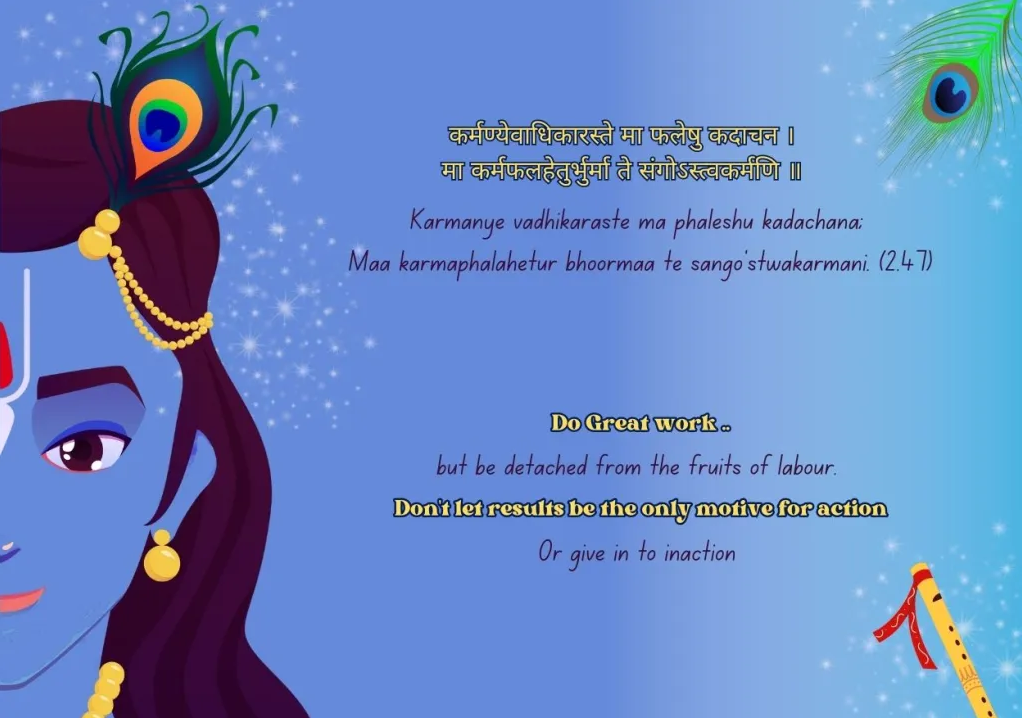True Happiness in ancient Bharath.
True happiness in Indian spirituality and Karma Yoga is a state of being that is not dependent on external factors, such as wealth, fame, or relationships. It is a state of inner peace and contentment that comes from living in accordance with one’s dharma, or duty.
The Bhagavad Gita, a sacred Hindu text, teaches that true happiness comes from selfless service to others. When we act without attachment to the fruits of our actions, we are free from the cycle of karma and can experience true happiness.
The Bhagavad Gita also teaches that true happiness comes from fulfilling one’s dharma without attachment to the results. In other words, we should focus on doing our best in each situation without worrying about the outcome. When we do this, we are free from the anxiety and stress that comes from being attached to results.

Srimad Bhagavad Gita
Another important aspect of true happiness is self-knowledge. When we understand ourselves deeply, we are able to accept ourselves for who we are and to live our lives in a way that is aligned with our true nature. This leads to a sense of inner peace and harmony.
Finally, true happiness is also associated with compassion and service to others. When we help others, we feel good about ourselves and we make the world a better place. This gives our lives meaning and purpose, which are essential ingredients for true happiness.
There are many ways to practice Karma Yoga in our daily lives. One simple way is to offer our actions to God and do them to the best of our ability, without worrying about the outcome. We can also practice Karma Yoga by being mindful of our intentions and choosing to act in a way that is beneficial to others.
When we live in accordance with Karma Yoga, we begin to experience true happiness. This happiness is not fleeting or dependent on external factors. It is a deep and lasting happiness that comes from knowing that we are living our purpose in life.
As we practice Karma Yoga, we begin to develop a sense of inner peace and contentment. We become less attached to the fruits of our actions and more focused on serving others. This leads to a deeper and more lasting happiness.
Here are some specific ways to cultivate true happiness in your life according to Indian spirituality and Karma Yoga:
- Live in accordance with your dharma. This means doing what is right for you and for the world, even if it is difficult.
- Be detached from the results of your actions. This means focusing on doing your best without worrying about the outcome.
- Develop self-knowledge. This means understanding your strengths, weaknesses, and true nature.
- Be compassionate and serve others. This means helping others without expecting anything in return.
True happiness is not something that can be found outside of ourselves. It comes from within, from living a life that is aligned with our values and purpose. Karma Yoga is a path to true happiness because it teaches us to live in accordance with our dharma and to serve others without attachment.

Here are some examples of how we can practice Karma Yoga in our daily lives:
- Helping a neighbor in need
- Volunteering our time to a worthy cause
- Donating to charity
- Recycling and reducing our environmental impact
- Being kind and compassionate to others
- Speaking the truth with love
- Performing our job to the best of our ability
- Raising our children with love and care
Id fames massa tempus ridiculus adipiscing consequat. Cum risus curabitur molestie placerat cras metus nonummy dignissim auctor mi mattis. Sociosqu dictum primis sem, hendrerit litora, odio a etiam.



